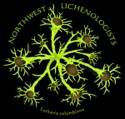This two-day workshop will focus on skills for identifying common Pacific Northwest macrolichens (foliose and fruticose lichens). After taking this course you will be sure to observe lichens, big or small (well, mostly small), almost everywhere you go!
We will focus on characteristics for field identification as well as characteristics seen through dissecting microscopes in the lab. Students will learn how to use chemical spot tests, an essential tool for distinguishing similar lichen species. Students will learn to recognize and distinguish between pollution-tolerant lichen communities that we often see in cities and the more pristine communities that occur in places with high air quality.
Saturday morning will begin with an introductory classroom session where we will cover basic lichen anatomy and terminology and discuss the roles lichens play in ecosystems, such as supporting wildlife. Saturday afternoon we will take a walk around natural areas on the Reed campus. We will collect some lichen material to bring back to the lab in the second part of Saturday afternoon in order to practice keying and identification.
On Sunday, the class will take a field trip to a natural area with high lichen diversity bout an hour outside Portland. We will spend about two hours at the field site, including about two miles of walking (rain or shine). The class will then return to the Reed campus for the afternoon for one more classroom and lab session.
The workshop is intended for natural resource and natural science professionals, undergraduate and graduate students in the natural sciences, and dedicated amateur naturalists. No previous experience with lichens is needed. Everyone is welcome, but please leave your dogs at home.
Space is limited so please register early to ensure you get a spot. The specific location where we will meet on the Reed Campus will be sent to registrants a few days before the workshop. Attendees are encouraged to bring a copy of Bruce McCune's Macrolichens of the Pacific Northwest book (third edition) and a handlens if possible.
Workshop registration for the general public is $200-$300, payable via Eventbrite or Venmo to Jesse (contact Jesse for more info). Reed students and staff should contact Hannah (pratherh {at} reed.edu) to register. Please note that refunds are not available after registering, although you may transfer your ticket to someone else. In the unlikely event that we have to cancel the workshop, registration fees will be refunded, though eventbrite fees are not refundable.
To find out about future lichen and plant workshops and field walks, please join Jesse's mailing list.
Instructor bios:
Jesse Miller has worked with lichens since 2007. He is currently working as the Washington State rare plant botanist, providing scientific guidance on the conservation and management of the state's rare plants, lichens and fungi. He previously taught ecology and statistics at Stanford. Earlier in his career he worked as a field botanist and lichenologist in Oregon and California. He completed his PhD in plant ecology at the University of Wisconsin-Madison in 2016. Jesse's research interests include the effects of global change factors such as altered wildfire regimes and climate change on old growth forest lichens. For more info, see his website: jesseedmiller.com
Hannah Prather is an NSF postdoctoral research fellow and Visiting Assistant Professor of Biology at Reed College in Portland, Oregon. Her PhD and teaching career has focused on the intricate relationship among lichens, bryophytes, host trees, and the surrounding ecosystem, all set against the dynamic backdrop of climate change and urbanization. Her work has taken place around the globe, most notably in tall trees species, urban environments, and polar ecosystems. At Reed, she teaches courses on the Lichens of the Pacific Northwest and Forest Canopy Ecophysiology. She regularly leads local lichen hikes and classes and in her spare time enjoys mountain biking, traveling, skiing, and climbing trees.



